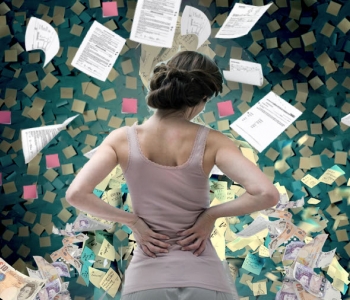New ways to deal with stress
"Stress is the adverse inner reaction that people experience when they come into contact with excessive pressures that they fail to handle." – Dr. Helena Lass
When there are too many outside triggers or stressors, like amid the COVID-19 pandemic and unfolding economic crisis, then our own inadequate automatic inner reactions can easily cause within our mind emotional and mental overload that leaves us incapable of dealing with stress reactions.
Experiencing this pressure within our minds (mind) is stress. Feeling it constantly is chronic stress. With repeated exposure to external stressors, the organism habituates to the stressor with repeated and sustained hypothalamic pituitary adrenal (HPA) axis activation.
INNER REACTIVITY AS THE SOURCE OF STRESS PROBLEM
A stressful situation makes our heart pound, quickens our breathing, makes our muscles tense, and can cause sweat. This combination of intrapersonal reactivity to external pressures or threats is also known as the fight-or-flight response; it is the human survival mechanism that enables people to react quickly to life-threatening situations around us.
This instantaneous sequence of hormonal changes enabled us to fight actively in case of an external threat or flee to safety. But now (due to the pandemic) we are stuck in our homes and we can't fight or even take a flight anywhere. So, we need to learn how to replace this inner reactivity with an aware response or suffer.
Letting stressors influence us means that we are bound to fail and have no choice but to experience stress.
What stress causes?
Let's look at what stress can cause in our daily lives.
The biggest threat to us is that in the current situation the stress can restrict adequate actions when we need them the most:
- We may stop working effectively from home;
- Inadvertently reduce the support for our children while they are homeschooling;
- Or act irrationally while shopping or going about other “normal” daily tasks.
During the virus outbreak, irrational actions and staying on ‘autopilot’ is dangerous, as when we need to be more mindful than ever before during our lives. We need to be fully aware of how we protect our physical bodies. We need to be mindful of keeping social distance and notice what we touch. Things that were no-brainers before the pandemic demand now noticing and good self-leadership.
Stress can lead to many health and relationship problems
What can stress cause?
Stress isn't only the main pathway to burnout and the main cause of several mental illnesses (such as depression and anxiety), stress also reduces our immunity and also causes directly many physical illnesses and physical health problems like cardiovascular diseases, diabetes, eating disorders, insomnia, etc.
Lacking the skills of stress management can also trigger anger or other irrational emotions. What stress can cause is serious relationship problems be it at home or with your colleagues. Those problems from stress can take a long time to solve later on.
.jpg)
The stress prevention strategy is always the same
It doesn't matter what triggers stress. Stress prevention strategies are always the same:
- Removing inner reactivity;
- Becoming aware of your awareness;
- Responding with full awareness enables you to make aware decisions.
Yes, you read correctly. No external stress trigger really matters without our own inner reactivity, as we wouldn't experience it to be a problem in our inner domain.
Do you remember some situations where one person had a huge problem and someone else next to that person stayed fully calm? The situation was the same, reactivity within two persons was different.
So, would you like to be that calm person? Would you like to act always adequately? Would you love to have practical skills that allow this?
This demands that you focus on prevention and personal sustainability. Here our co-founder Dr. Helena Lass is a global mental wellness pioneer.
Practical intrapersonal skills are something that enables you to nip stress activation in the bud.
Intrapersonal skills allow self-observation, noticing and leading of all your inner processes at will. After all, you aren't your thoughts, emotions or reactions. You have learned all those and often subconsciously, which has resulted in wrong automatic reactions. Here awareness needs to become your filter and your inner skills your self-leadership tools.
When you learn practical intrapersonal skills that you can apply to stay well and respond adequately you will be well. Skills are always practical and always with you.
CONCLUSION
By taking personal responsibility for our intrapersonal processes we become aware of how to respond and this leads us to a pathway for solving problems. This enables us to make the needed changes around us so that the economy can be restored after the crisis.
Better stress awareness and knowing how to reduce our inner reactivity also allow our personal and work relations to thrive. Our inner sustainability starts then to pave a pathway to a more sustainable society and work models.
We encourage all employers to support their employees by providing them access to stress and burnout prevention strategies along with proactive mental wellness courses. Such an approach means that when things get tough people are not stressed out and can handle pressure.
We all need to become mental wellness pioneers, as when the pandemic ends, we need people who are fit to work and ready to innovate more sustainable ways to live, work and thrive than the previous GDP growth-orientated economy was.


